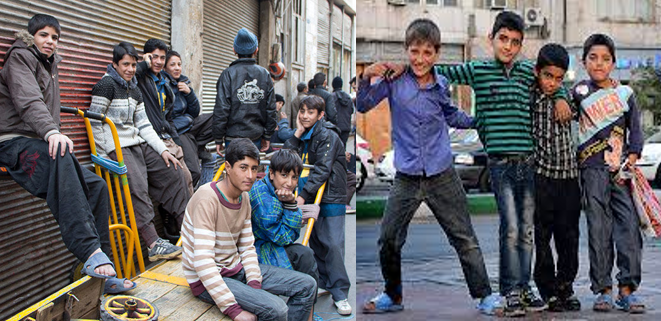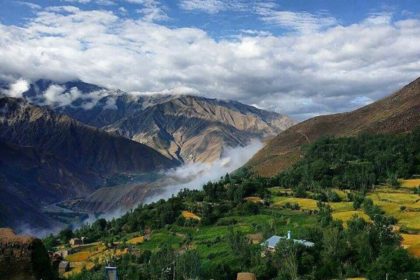RASC News Agency: In the shadows of geopolitical indifference, hundreds of vulnerable Afghanistani children find themselves cast out daily, victims of state-sanctioned expulsion and systemic abandonment. These children once toiling in the hidden corners of Iranian cities, scrabbling for a morsel of bread or a fleeting chance of survival are now deported in alarming numbers, stripped of family support, dignity, and hope. According to reliable reports from border monitors at Islam Qala in Herat and the Silk Bridge crossing in Nimroz, an estimated 100 to 150 unaccompanied Afghanistani minors are forcibly returned from Iran every day. They arrive disoriented, deprived of any knowledge of their families’ whereabouts, and thrust into an inhospitable homeland that offers neither protection nor assistance.
Detailed accounts reveal a chilling pattern: Iranian law enforcement agencies detain these children indiscriminately—on streets, at intersections, and even outside their own shelters—without notifying their families or any legal guardians. They are held in temporary detention centers for days, isolated and forgotten, before being unceremoniously shipped to Afghanistan’s borders. There, these children are abandoned, with no reception infrastructure or social services to meet their needs. One poignant testimony is that of Bahadur Beik, a 14-year-old boy stranded and alone at the Islam Qala border. “Six of us were taken. Two managed to escape. We were held overnight in a camp and deported the next day,” he recounts with palpable distress. Bahadur was employed on a poultry farm in Mashhad, Iran, from which he was abruptly seized. His wages were withheld, confiscated by the authorities who claimed it covered transportation costs to the border. “They gave me only one meal of bread and beans,” he adds, highlighting the callous neglect faced by these children.
Bahadur’s ordeal is emblematic of a wider crisis. Along the scorching borderlands, hundreds of deported minors find themselves homeless and aimless without money, shelter, or social networks. Meanwhile, families still residing in Iran report agonizing disappearances of their children, who vanish after mundane errands or short-term labor, leaving relatives in desperate uncertainty. “We searched for days,” said one parent, “until a distant call confirmed our child had been deported back to Afghanistan. We had no prior warning.” International human rights bodies have repeatedly condemned Iran’s indiscriminate deportation policies, particularly their targeting of unaccompanied minors. Yet, despite persistent international outcry, the scale of expulsions continues to accelerate. Official border figures indicate that between 3,000 and 7,000 Afghanistani nationals including women, children, and men are pushed back from Iran daily, many without valid identification or means to sustain themselves.
The deportees recount harrowing experiences of extortion and humiliation. One elderly deportee, traveling with his wife and daughter, described a brutal journey rife with forced payments: “At every checkpoint, they demanded money 3.5 million tomans per person. It didn’t matter if you were a child or an elder; we were all degraded and dehumanized.” Perhaps most heartrending is the plight of families still awaiting their children’s return, unaware that their loved ones have already been processed and abandoned at the border without any communication or trace. This is not mere administrative failure it is a profound human rights catastrophe unfolding in full view. Exacerbating this crisis is the Taliban regime’s complete abdication of responsibility. Despite presiding over one of the most fragile societies on earth, the Taliban have failed to establish any protective frameworks or social welfare systems to aid the surging influx of deported children. Their governance remains obsessively fixated on regressive social controls such as enforcing strict dress codes and gender segregation while utterly neglecting fundamental humanitarian obligations.
The absence of any child protection programs, family reunification efforts, or reception facilities at border points starkly illustrates the regime’s indifference and incapacity. As a result, Afghanistani children are left to navigate the perilous terrain of displacement alone vulnerable to exploitation, trafficking, and continued deprivation. This ongoing tragedy demands urgent global attention. The international community must break its silence and hold both Iranian authorities accountable for illegal, inhumane deportations and the Taliban regime responsible for gross neglect and human rights abuses. Without decisive intervention, thousands of Afghanistani children will continue to bear the brunt of geopolitical failures, becoming invisible casualties in a crisis that the world cannot afford to ignore.






